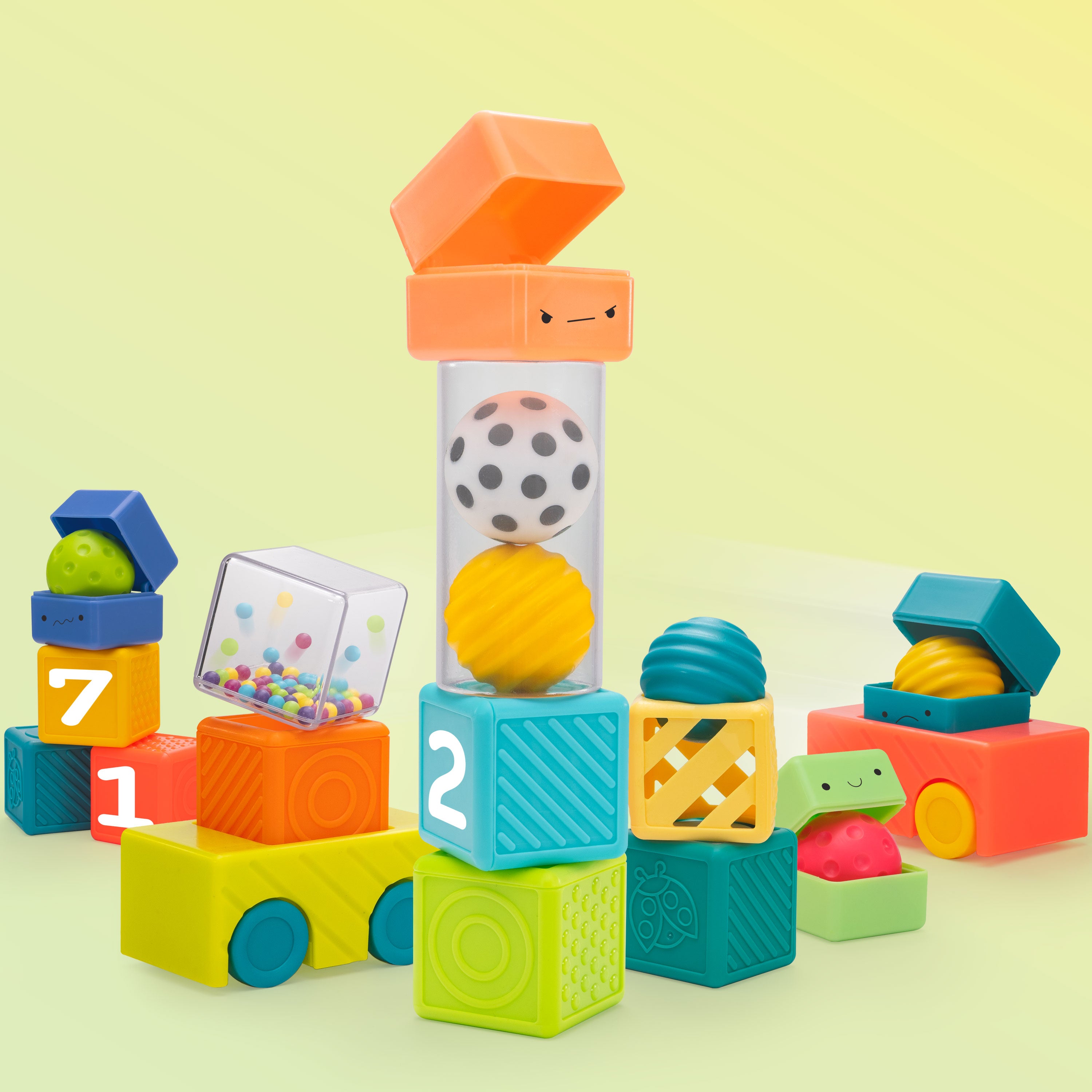The Educational Perks of Having a Plush Pal
 We take great pride in creating some of the very best plush critters on the market because we know many times a baby's first toy is a teddy bear or another soft animal creature. When shopping for a cuddly toy to gift (or maybe even yourself!) you may think it's just a cute, sweet item, but actually there are a lot of educational benefits little ones can learn from a plush friend.
We take great pride in creating some of the very best plush critters on the market because we know many times a baby's first toy is a teddy bear or another soft animal creature. When shopping for a cuddly toy to gift (or maybe even yourself!) you may think it's just a cute, sweet item, but actually there are a lot of educational benefits little ones can learn from a plush friend.
In honor of Plush Animal Day - here are 5 benefits of stuffed animal toys.
Touch: Babies and toddlers love to touch the surfaces of stuffed toys, feeling their fabrics, fur or hard eyes. This helps children make connections about what they feel and practice grabbing and holding onto things.
Empathy: As toddlers, children start to learn empathy, along with language and names. Some stuffed animals help young children recognize familiar words, like dog, cat, bear, etc - along with the appropriate sound made by each animal. Stuffed toys often are named and become constant companions. Emotions can be tested out on these silent friends - they may be thrown, hugged, squished, hit and kissed. This is where early parenting skills are practiced too, so stuffed animals may be put to bed, dressed, changed, can sit on the potty, etc. Often, a stuffed toy may be a child's first real friend.
Imagination: Stuffed animals are not restricted by their appearance, so a teddy bear can be anything - a princess, a doctor, a teacher, or just a teddy bear. Often, kids will include their soft friends in activities play and share their feelings with them. Sometimes a child can come home from a rough time and reenact the event, helping them deal with difficult emotions. Just like real pets, stuffed animals may even help children feel calm.
Stage Presence: Sometimes, a whole crew of stuffed animals can become a class of students where the child is the teacher, or an audience for a performance, or a group of guests at a tea party. This is the perfect opportunity for kids to reflect their preoccupation with new structures and people in their lives, and feel more comfortable with other people and help them practice being a leader.
Environmentally Conscious: Stuffed toys can start a child's love for animals and our world, and drive their want to help take care of it so they will stay safe. If a child has a few stuffed animal friends, and then learns a little more about them through books or going to the zoo, it will help kids classify animals, learn about their natural habitats, possibly encourage geography and inspire them to help take care of their space in the world.



Leave a comment